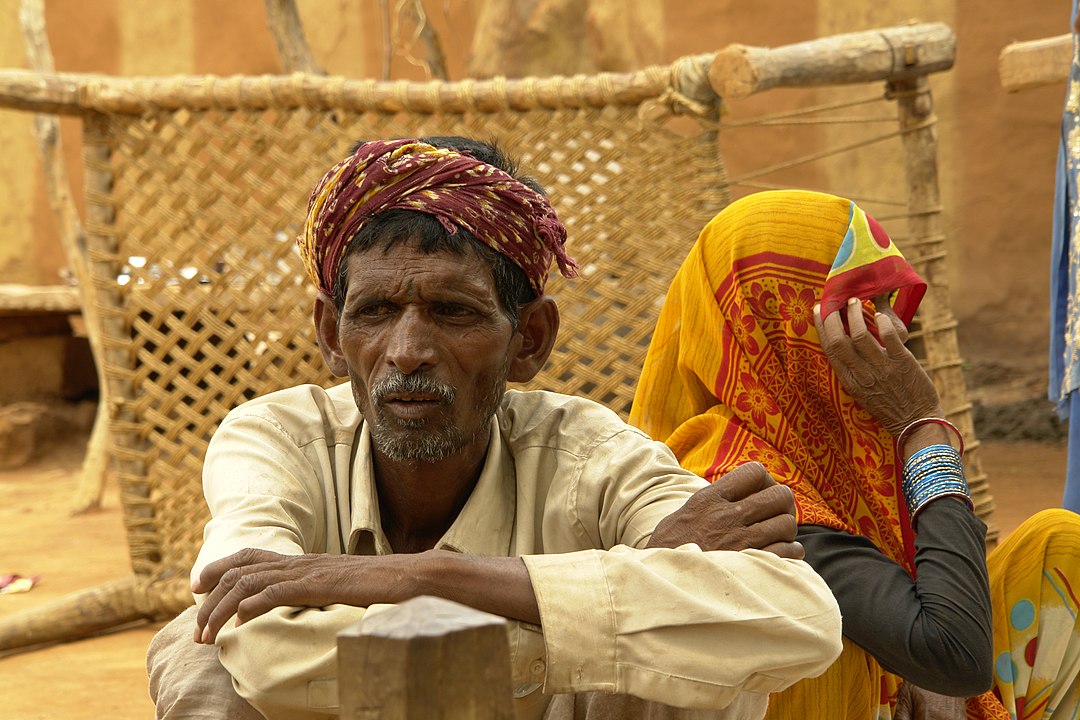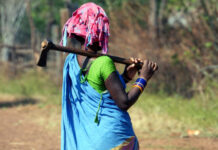
The lockdown has brought about unprecedented hardships for the people belonging to the Adivasi villages of Madhya Pradesh. The pathological state in which they find themselves is surely a reminder of institutional apathy, lack of coordination between the Centre and the state and the political unwillingness to help out impoverished sections of the population amid the pandemic. The condition of the Sahariya tribe in Madhya Pradesh is particularly pathological and if stringent redressal mechanisms aren’t applied at the earliest it could bring about greater hardships for such communities.
The community is largely dependent on agricultural work as footloose labour in the fields in the region and this is their sole source of income, but the lockdown has coincided with the main season for agricultural work of the region. This is the Rabi season and this is the time when most of the agricultural work takes place and this is thus also the time when the Sahariyas find employment in the agricultural fields.
It is between the months of March and May that local farmers open up their fields to these Adivasis and give them employment by hiring them for agricultural work. The main crops that the Sahariyas produce in the fields are wheat, mustard and garlic.
But this year around, the Adivasi community hasn’t been able to access employment because of the lockdown and also because the police isn’t allowing them to travel from their native villages to their sites of work. This hasn’t just deprived them of their source of income but has also snatched away their only chance in an entire year to fill up their small granaries.
It is to be noted at this juncture that in the northern states of Punjab and Haryana, people who are hired for agricultural work are paid in cash but in Chambal and Bundelkhand regions of Madhya Pradesh and Uttar Pradesh, agricultural labour is often paid in kind.

This means that instead of cash, they are offered a part of the wheat harvest by their employees. On an estimate, if a working couple is hired for 10-15 days of the harvest season, they can easily bring back round 600 kgs of grain and this helps them create the foundations of food security for themselves and their families.
But the coronavirus pandemic has shaken this very foundation and this has rendered the Sahariyas completely dependent on the government for sustenance and survival.
But can the state administration help them in these moments of crisis and survival anxiety? No, the administration cannot really sufficiently help these people in the absence of cooperation and control from New Delhi and the Central government.
It was on March 26 that the PM Narendra Modi led governed had announced a relief package for the distressed class but after six weeks there certainly is a need to do much more, especially if one were to take into account the plight of vulnerable groups such as the Sahariyas into consideration.
The Centre has made an announcement that it would now send a doubled quota of food grains free of cost to the states so that they could be disseminated to people in need through the PDS system, the Centre also promised to provide 1kg of pulses per person per month during the crisis period. After this, the Madhya Pradesh government had acknowledged that it has received the additional allocation of rice from the Centre for a period of three months but it did not utter even a word on the attainment or distribution of the pulses.
The state movement has said that the food grains would be distributed through the PDS network and the state government would distribute the additional rice for two months(April and May)together.
But the main issue here is that neither the rice nor the pulses have reached the villages of Pahadgarh, where the Sahariya tribe lives. Lack of transportation facilities amidst the lockdown was cited as an important reason why the food grains were not delivered by the Madhya Pradesh government but the question is, how many days more will the Sahariya tribe be compelled to live under hunger despite the announcement of a relief package?
How will the already disadvantaged community deal with the food distress caused due to the lockdown? Can continual lack of cooperation between the state and the Centre be allowed to impoverish the vulnerable tribes of Madhya Pradesh?
Zakir Afridi is a social activist based in Indore, Madhya Pradesh.













